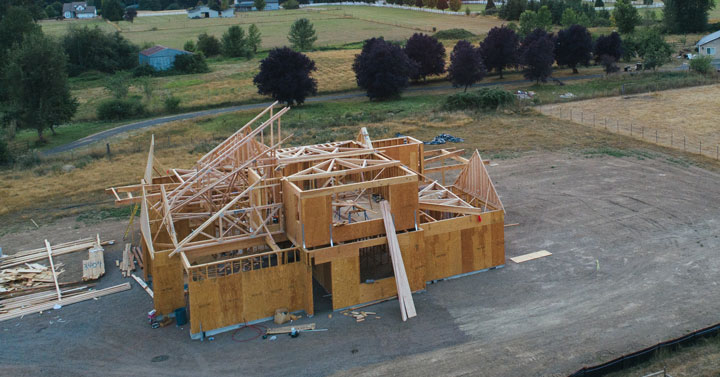Purchasing a unit that is still getting built at the time of signing the contract seems hassle free, and a weight off your shoulders with not having to think about costing, delays, daily discussion with builders and to be presented with a brand-new beautiful unit at the end!
In some sense, purchasing off-the-plan can be great, but because of the lack of control during the build process, there can be pitfalls too! Ensuring that you obtain the benefit of enforcing the warranties with the builder is one of the most important things to do when you are purchasing to ensure you can continue on hassle free once settlement has occurred.
What Are Warranties And Why Are They Important?
A warranty in a construction contract is written guarantee given by the builder to the owner that they will fulfil their obligations under the contract. Some of the most important warranties that are commonly in construction contracts are:
- that the materials used will be of good and merchantable quality;
- that the work will be carried out in a good and workmanlike manner;
- that the work and materials used to complete the works will be fit for purpose; and
- that the materials used and the completed works themselves will be reasonably fit for the purpose for which they are required.
It is obvious to see why every owner would want to see these warranties in their construction contract. These warranties set a standard for the industry and will ensure that your home is built correctly and safely by qualified people.
Another imperative contract term that is common to explicitly see in a construction contract is a defects liability period. This is usually one year from the date of completion. This allows the owner to call upon the builder for any defects that has occurred in the building and the Builder must come and rectify that defect within a reasonable time period.
Minor defects are common in the first 12 months post construction, this is why the defects liability period and warranties are so important.
If a warranty is not fulfilled by a Builder or the defects liability period not complied with, the Builder would be in breach of the construction contract and the other party to the contract typically has a claim against the builder to force them to comply.
Who Would The Warranties Be Given To In The First Instance?
Just like any construction contract, the Builder would be providing warranties to the person that has engaged them to build the unit. In this case it would be the person/developer that is selling you the finished unit.
In some instances, the Developer can be the Builder, and, in that instance, there would most likely not be a construction contract in place.
What About Home Warranty Insurance?
Whilst the Home Warranty Insurance (that is required to be undertaken before any works is commenced) stays with the property, which means an incoming purchasers may be able to rely on it , there are other things to consider that may not be included under that scheme. For example, any manufacturer warranties in respect to any of the work under the construction contract or goods and equipment like appliances, washing machines and/or garage roller doors that also form part of the work under the construction contract. Equally, there are a number of pre-set criteria that must be met prior to being eligible for the Home Warranty Insurance, and home owners are often left out of pocket because the scheme doesn’t apply to them and their circumstances on the basis of specific criteria not being met and/or exclusions.
It is also important that you do a search of insurance when purchasing the property to ensure that the Builder has actually taken out that insurance that they are required to on the property.
What Does That Mean For You As The Purchaser?
Unfortunately, what we see at Enterprise Legal, is people who find themselves with defects in the property or with the equipment provided, and very little to no control in being able to get this fixed. Due to the lack of assignment of the warranties under the Property Contract, the Seller ‘wipes their hands clean’ once settlement has taken place and the have received their funds from the sale. Without the correct documents and special conditions in place in your Property Contract, you would have no right to ensure the builder replace the defects (e.g. roller door, air conditioning unit, defective roofing system etc.).
How Can You Ensure You Can Enforce Those Warranties Once You Have Purchased The Unit And A Defect Occurs?
To ensure that you have the benefit to enforce the warranties with the Builder once settlement has taken place, you should make sure the warranties under the construction contract between the Builder and Seller are assigned to you. It is important to cover off on the assignment of warranties prior to signing the Property Contract. As such, at Enterprise Legal, we recommend a Deed of Assignment of Warranties is put into place between yourself, the Seller and the Builder. This Deed will ensure that any warranties provided to the Seller by the Builder under the Construction Contract is assigned to you so you may rely on them should a defect occur in your unit once settlement has taken place. Typically, Builders also have a 12 month defect liability period post construction, during which period they have an obligation to rectify defects promptly and effectively. The Deed can also assign this defects liability to you, as the incoming Purchaser.
At Enterprise Legal we recommend to all clients that the engage us to review their draft Property Contract, not only from a property perspective, but from a construction perspective to ensure that things like warranties are considered as it can be something easily missed and unfortunately could cost a Buyer a lot of time and money down the track should it not be address at the beginning of the process.
If you are looking to purchase an off -the-plan unit and need assistance, please reach out Enterprise Legal's expert property conveyancing team:
☎️ | (07) 4646 2621
✉️ |










